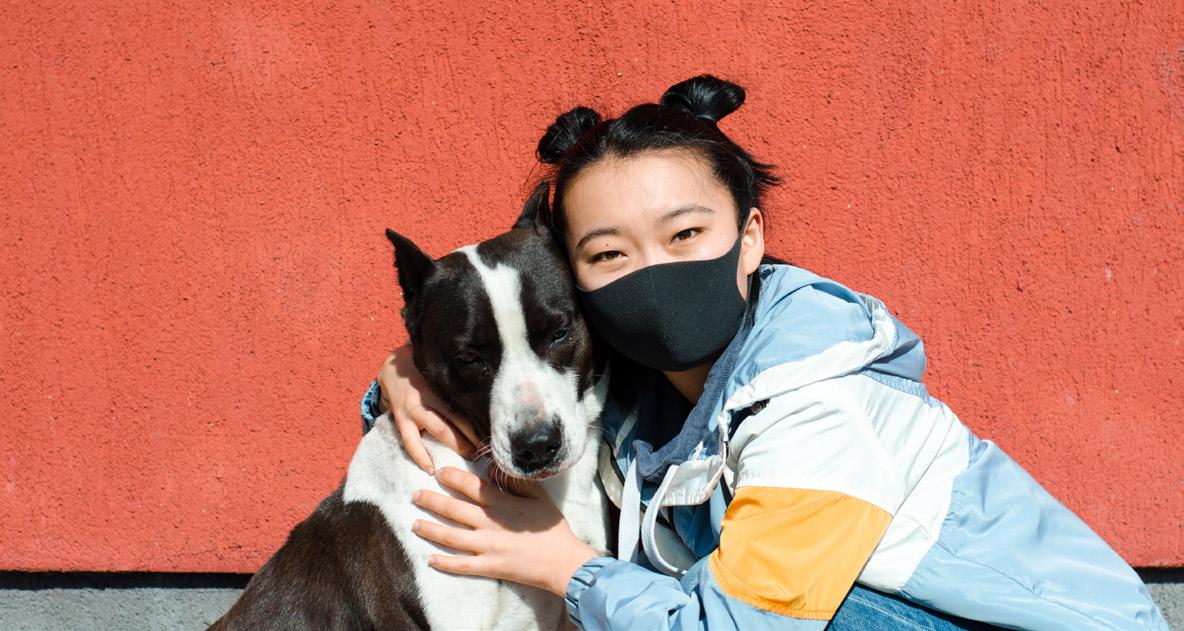Lifestyle
QUESTIONS TO ASK BEFORE ADOPTING A PET
How to Adopt the Best Rescue Animal For You & Your Family
How often will I be away from home? How much do I have to spend on the initial set up for a new animal? How much can I afford on a monthly and annual basis for supplies and medical care? How active am I? Do I have the time to commit to potty training or training in general?
BY TRACY WRIGHT
Pets are often seen as a remedy for loneliness, boredom and more fulfillment in individual and family lives. Yet beyond slobbery kisses and soft purring, adding pets to our lives is a choice that need to be considered very carefully. The Humane Society of North Central Florida recommends that potential adopters ask themselves many questions before even looking for a new animal.
“Before a family or person begins looking for a new animal, we always recommend that they evaluate their own lifestyle and schedule and consider the financial obligation of owning an animal,” said Sarah Gilley, adoption coordinator and customer care manager of the Humane Society of North Central Florida. “Even if the adopter does not know exactly what they want or need in a new animal, if they have the answers to basic questions about themselves, we can help better match them with an animal that will be the best fit for their home.” These questions may include costs and affordability, how often you are away from the home, time commitment for potty and general training, animal compatibility with current or future children as well as current pets, and level of current activity. On the Humane Society’s website, it includes listing for dogs, cats, rabbits and other small mammals. Even if the adopter does not know exactly what they want or need in a new animal, if they have the answers to basic questions about themselves, the shelter’s employees can help better match them with an animal that will be the best fit for their home, Gilley said. Potential adopters should understand that adopting a pet is making a long-term commitment, both personally and financially. This could be potentially 10-15 years for a dog or up to 20 years for a cat. Even as you go through changes in your life, your pet remains a permanent part of your life, the ASCPA said. Adoption requires a financial investment beyond just the initial adoption fees. Veterinary care expenses add up especially when adopting a puppy or kitten in addition to
46
WELLNESS360 | MARCH/APRIL 2021
Do I currently have children or other animals, or will I in the foreseeable future? Do I want a big or small animal?
food and microchipping. Many shelters, like the Humane Society, will include spay/neuter, microchipping and appropriate vaccinations by age. The investment of time is also something that should be considered. Dogs need time to exercise and be outside as well as bonding with their owners and family. Cats too benefit from being indoors and enjoying brisk play with their families. “We always recommend that adopters do their own research before and after getting a new animal, but they can always ask us questions about the animal's medical history and how he or she has behaved while with us,” Gilley said. “One excellent question adopters can ask is if the animal has been in a foster home. If so, the staff will have a better understanding of how the animal behaves in a home environment and outside of the stressful shelter setting.” Most shelters will require people to go through a “brief but thorough” application process with a series of questions to ensure that the pet is the right fit for the family or person. The Humane Society provides a counseling session so that pet owners have a better idea of what to expect. Unfortunately, there are instances where pets are returned to the shelter. Nationally that rate ranges between 7% and 20%
for the first six months following adoption, according to the American Humane Society. Locally the Humane Society of North Central Florida reports that their current return rate is much lower at 3.7%. Most of the time the return is made when an owner has to move. “There are more and more resources becoming available for pet owners to help them find pet friendly housing options, such as filtered search options on websites,” Gilley said. “When an adopter contacts us needing to return an animal, we will provide them with these resources or any other resources they may need to help keep the animal in their home. We may also recommend rehoming resources and ways for the adopter to find a new home directly and not return back to us or a different shelter, though we are always happy to take an animal back if resources are not an option.” Gilley also advises potential adopters to understand that even with the best fit, an animal’s transition to a new home is never easy and can be stressful for the animal. This transition period can last anywhere from days to months before the animal is comfortable in its new home. “The adopter should also keep in mind that they are able to reach out to us at any time with questions, and we are happy to help guide them through whatever issues they may be experiencing,” Gilley said.
HOW TO GIVE BACK TO THE PET COMMUNITY IN NEED Even during the time of COVID, pets still need our help! There are many places and ways to give back through volunteering and/ or donations. Due to COVID, volunteer shifts are limited so it is best to contact a shelter individually to see how you can help.
LOCAL ANIMAL SHELTERS AND RESCUE PROGRAMS Humane Society of North Central Florida, Alachua County Animal Services, Haile’s Angels Pet Rescue, Gainesville Pet Rescue, Puppy Hill Farm, Maddie’s Pet Rescue Project, Gainesville Rabbit Rescue













